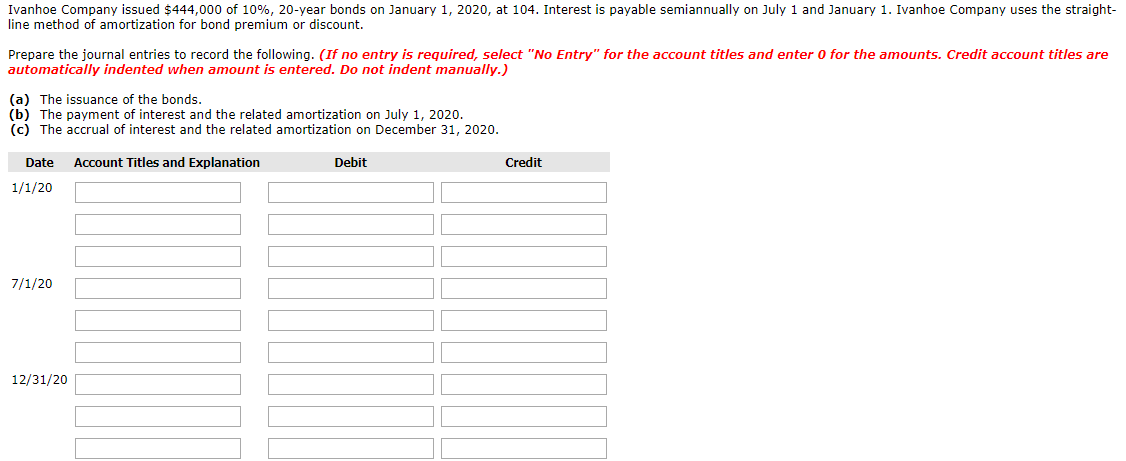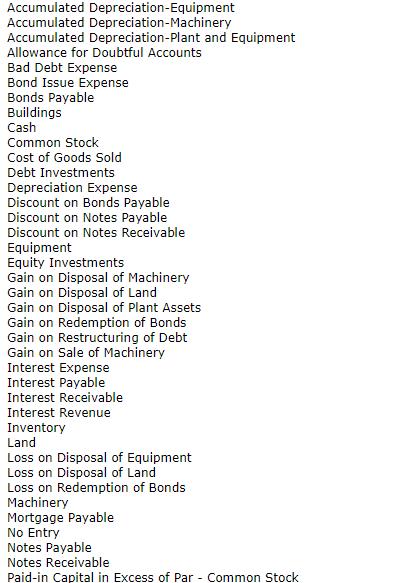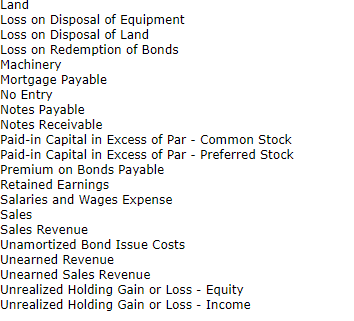Answered step by step
Verified Expert Solution
Question
1 Approved Answer
Ivanhoe Company issued $444,000 of 10%, 20-year bonds on January 1, 2020, at 104. Interest is payable semiannually on July 1 and January 1. Ivanhoe



Step by Step Solution
There are 3 Steps involved in it
Step: 1

Get Instant Access to Expert-Tailored Solutions
See step-by-step solutions with expert insights and AI powered tools for academic success
Step: 2

Step: 3

Ace Your Homework with AI
Get the answers you need in no time with our AI-driven, step-by-step assistance
Get Started


